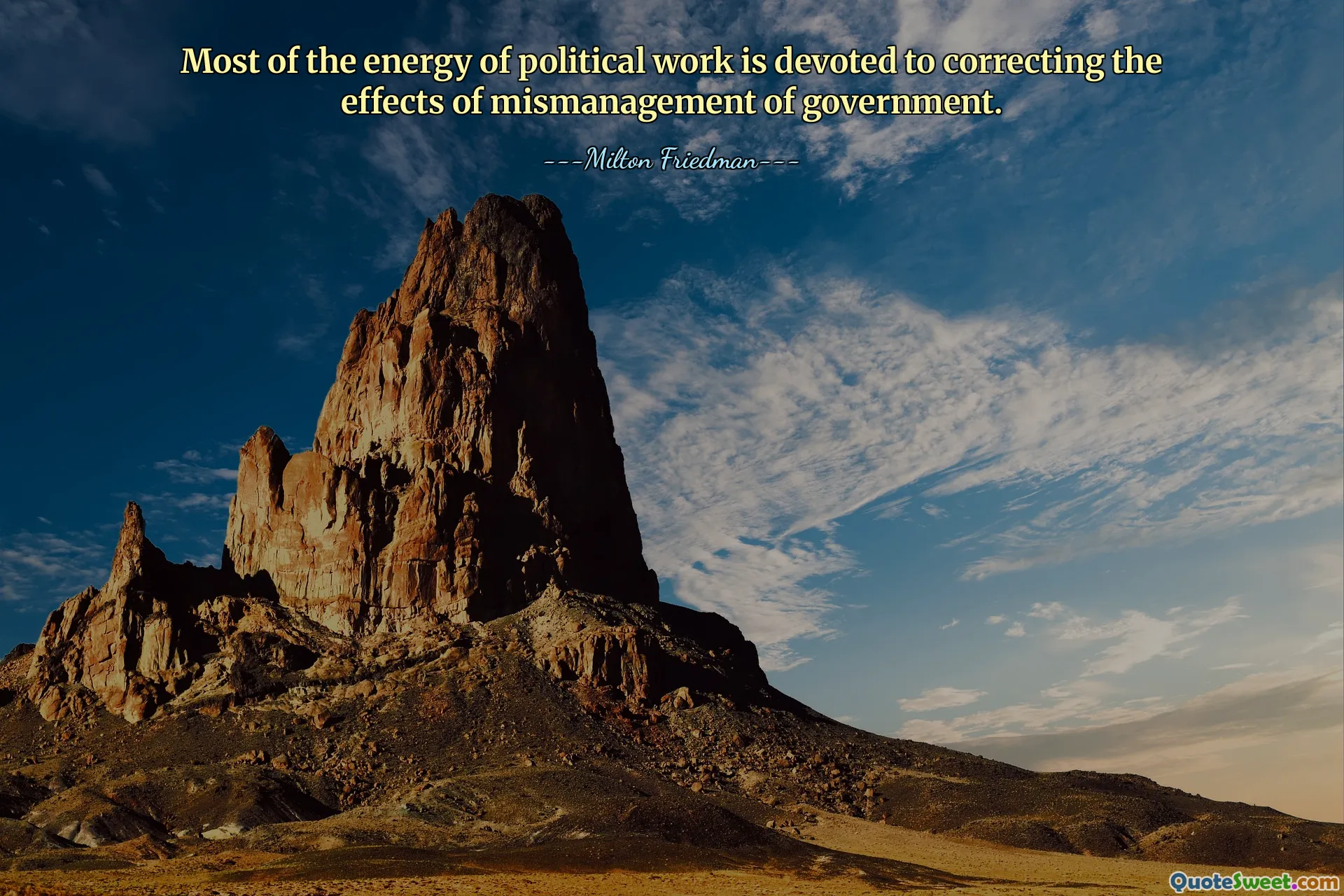
Most of the energy of political work is devoted to correcting the effects of mismanagement of government.
This quote by Milton Friedman highlights a fundamental challenge faced by political systems around the world: the persistent focus on rectifying the consequences of inadequate management rather than addressing the underlying causes. Political efforts often become reactive, dealing with issues as they arise rather than implementing proactive solutions that could prevent problems from occurring in the first place. This dynamic can lead to a cycle where governments spend substantial resources and political capital merely patching up problems instead of fostering sustainable and effective governance.
Such a pattern can also dilute the effort needed for meaningful reforms. When the primary goal is to fix the fallout from mismanagement, policymakers may prioritize quick fixes over structural changes that could improve efficiency and accountability in the long term. As a result, citizens may experience continuous frustration, feeling as though their government is perpetually behind the curve.
Furthermore, this focus on damage control can hinder innovation in public administration. Instead of exploring new approaches or adopting best practices, governments may rely on traditional methods that only serve to address symptoms rather than root causes. It also discourages accountability, as efforts are spent on mitigating issues rather than preventing them.
Overall, Friedman's insight urges us to think more strategically about governance—shifting from merely fixing problems to implementing how to prevent them. Proactive and effective management of public resources, transparent operations, and accountability can reduce the amount of effort required to correct mismanagement, leading to more resilient and efficient government institutions.
Recognizing this pattern is essential for both politicians and citizens who seek to improve the quality of governance and create lasting change that benefits society at large.







